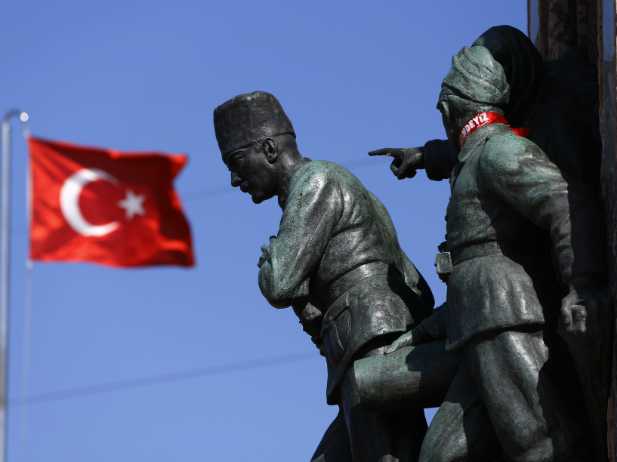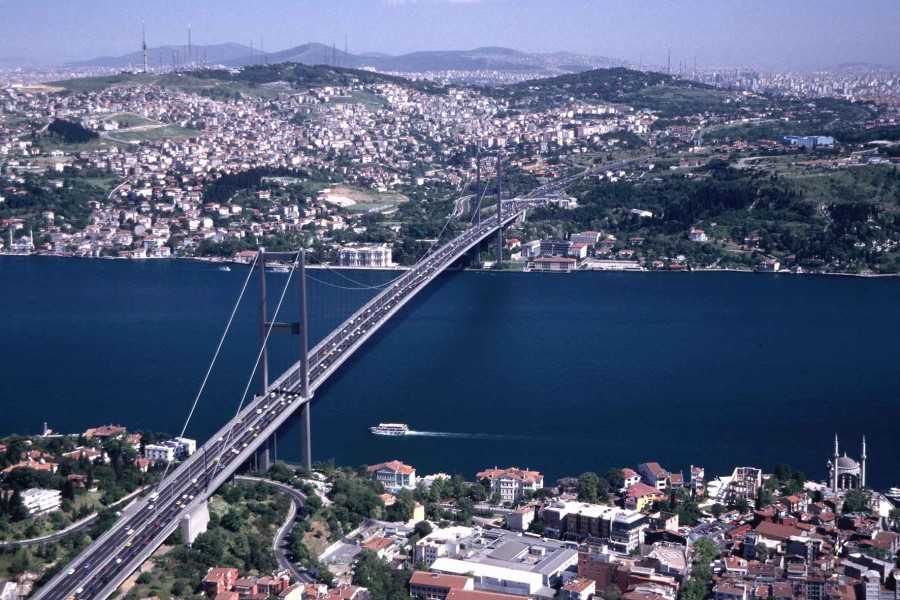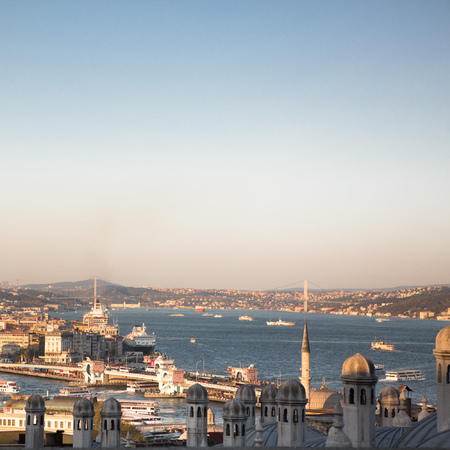Committed to Change, or Changing Commitments?
by Soli Ozel*
Those who rejoiced in the presidential victory of Barack Obama expect him to hold Turkey to higher standards on human rights, democracy, and rule of law.”
ISTANBUL — Two weeks prior to the U.S. presidential election, the October survey of Metropoll found that nearly 39 percent of Turks wanted Barack Obama to be the next U.S. president and only 14.1 percent wanted John McCain. Of those surveyed, 45 percent were either not interested or thought it did not matter who was elected the next U.S. president.
On the eve of election night, as talk shows on the U.S. elections proliferated across television channels in Turkey, it transpired that many members of the punditry had a high discomfort level with an Obama presidency. Particularly, former diplomatic corps representatives openly displayed their displeasure with such a choice in fear that such a move could jeopardize bilateral relations.
As Amberin Zaman explained in “Turkey and the United States Under Barack Obama: Yes They Can,” indeed the only reason for such animosity was the president-elect’s open support for a genocide resolution. U.S. Senator and now Vice President-Elect Joe Biden’s record on Cyprus and the Armenian genocide resolution, as well as hisKurdophile views (his partiality for a highly autonomous if not independent Kurdistan in Iraq) was also duly noted.
Such a degree of insularity or self-centeredness cannot be very healthy for a country that wishes to play and will be asked to play an important role in regional affairs during the Obama presidency. On the one hand, Turkey and Turks from all walks of life desire to be taken seriously, take pride in their country’s recent performance as a mediator in regional conflicts, and support a more activist foreign policy. On the other hand, there is very little tolerance for acts or policies on the part of Turkey’s allies and friends that may not entirely satisfy Turks’ expectations. This intolerance is particularly accentuated on the issue of the Armenian genocide resolution and the fight against the separatist Kurdistan Workers’ Party (PKK) when it comes to the United States.
Many Turks shared the world’s enthusiasm for the election results but this did not stop others from questioning either the authenticity of the president-elect’s image and views, or to doubt that he would make a difference. Some welcomed the change that the Obama administration promised to bring in both the domestic and foreign policies of the United States. They welcomed the possibility of a more cooperative approach to world politics on the part of the new U.S. administration. They also believed that the symbolism of the election for American democracy would help re-kindle the drive for democracy throughout the world that had been discredited under the Bush administration. In short, their logic was that a development that would be good for the world could not be bad for Turkey.
Those who rejoiced in the presidential victory of Barack Obama expect him to hold Turkey to higher standards on human rights, democracy, and rule of law. Precisely for this same reason, others are uncomfortable and would have preferred a Republican administration that would just pay lip service to such issues and shape its relations with Turkey on the basis of strategic and security concerns. Such a U.S. administration would have little to say about the ongoing hardening of the ruling Justice and Development Party (AKP) government’s policy vis-a-vis the Kurds, and its blatant disregard for freedom of expression and of the press. It would not raise the flag on rising police brutality and torture, and would not put undue pressure on the government to revitalize the moribund EU accession process.
No matter which way the Obama administration goes, there is no doubt that a new page will be turned in Turkish-American relations. These relations went through a turbulent period under U.S. President George W. Bush and have only begun to recuperate following the November 5, 2007 meeting between President Bush and Turkish Prime Minister Recep Tayyip Erdoğan. The U.S. president’s decision to provide the Turkish Armed Forces with actionable intelligence about the PKK went a long way in both improving the American image in the country and in re-establishing trust between institutions.
I argued in an earlier analysis piece that both the government and the armed forces were ready and willing to improve relations. On the American side there is recognition that Turkey’s cooperation will be necessary for almost all the thorny issues that the new U.S. administration will tackle, from Iraq to Afghanistan to the Caucasus. The two sides have a clear common interest in coordinating efforts for energy security and for stabilizing the Caucasus.
With such a loaded agenda, the United States and Turkey will need to understand one another’s motives, concerns, and perspectives clearly. Redefining the common interests of Turkey and the United States—a task that was due immediately after the end of the Cold War but was not undertaken—is a necessary step. In the wake of the Iraq war and the many failures of the Bush administration in its policies toward the Middle East, Turkey cannot be expected to put America’s global interests over its own regional interests.
Over the course of the past decade, Turkey’s policy toward the region has taken a new direction in reflecting political imagination for the region. Favoring diplomatic engagement, egalitarian relations, and regional initiatives, this latest political approach began to take shape at the end of the 1990s but found its full manifestation under the AKP government.
Turkey’s much-appreciated mediation between Syria and Israel, the opening to Armenia, and the desire to play a constructive role between Iran and the United States all stem from this approach.
Based on the president-elect’s preferences for diplomacy over confrontation, there should be plenty of room for the two allies to cooperate. Indeed, in Iraq when troop withdrawal begins, Turkey will be asked to be of assistance.
In Afghanistan, if a negotiated truce is reached that will include the Taliban, Turkey’s historical ties with that country and with Pakistan for that matter might come in handy for the arduous process of nation-building that is the only guarantor of peace and stability in the long-run.
However, it is also imperative that in this new period the mechanics of the relationship change as well. Rather than asking Turkey to cooperate with the United States on policies singularly decided upon in Washington, an effort should be made to devise policies in a more collaborative fashion. Turkey’s myriad connections in Russia and Iran ought to be taken into consideration before Ankara is asked to participate in policies that might harm its vital interests.
Turkish officials and the public in general will look for American support for fair resolution of the Cyprus conflict and for more committed American assistance in fighting the PKK in northern Iraq. Begrudgingly but steadily, Turkey has taken steps to recognize the political reality of the Kurdistan regional government. The chances are high that relations between Ankara and Erbil, the Kurdish regional capital, will not have to go through Baghdad in the near future. However, there are two preconditions for such a development. The first is the isolation, weakening, and elimination of the PKK in northern Iraq. The second is the continuation of the special status of Kirkuk, keeping that city out of sole Kurdish control.
Geopolitical realities seem to have once more elevated Turkey’s importance in American foreign policy decisions. In the past, Turkey’s strategic importance and America’s reliance on it had an inverse relation to the deepening of Turkish democracy. In other words, during the Cold War Turkey’s democratic deficits were not of much concern for Washington. Today, the stability of Turkey necessitates that the country maintain its democratic orientation and that all its political actors (the military, the judiciary, and all its political parties) commit themselves to this goal. One of the major tests of the Obama administration in its relations with Turkey may very well be whether it will treat Turkish democracy as a fundamental good or an expendable one.
If Washington continues to rigorously support Turkey’s EU accession process and insists forcefully that Ankara show the same enthusiasm as it did between 2002 and 2004, it will have passed the test.
——————
Soli Ozel, Lecturer, Bilgi University; Columnist, Sabah Soli Ozel teaches at Istanbul Bilgi University’s Department of International Relations and Political Science. He is a columnist for the national daily Sabah and is senior advisor to the chairman of the Turkish Industrialists’ and Businessmen’s Association. Additionally, he is the editor of TUSIAD’s magazine Private View.
The views expressed here are those of the author and do not necessarily represent the views of the German Marshall Fund of the United States (GMF).
About GMF The German Marshall Fund of the United States (GMF) is a nonpartisan American public policy and grantmaking institution dedicated to promoting greater cooperation and understanding between North America and Europe. GMF does this by supporting individuals and institutions working on transatlantic issues, by convening leaders to discuss the most pressing transatlantic themes, and by examining ways in which transatlantic cooperation can address a variety of global policy challenges. In addition, GMF supports a number of initiatives to strengthen democracies. Founded in 1972 through a gift from Germany, on the 25th anniversary of the Marshall Plan, as a permanent memorial to Marshall Plan assistance, GMF maintains a strong presence on both sides of the Atlantic. In addition to its headquarters in Washington, DC, GMF has seven offices in Europe: Berlin, Bratislava, Paris, Brussels, Belgrade, Ankara, and Bucharest.






